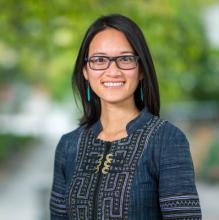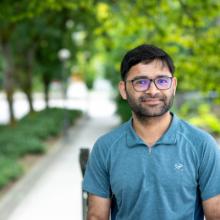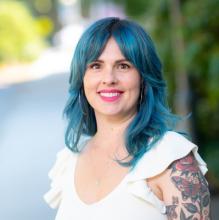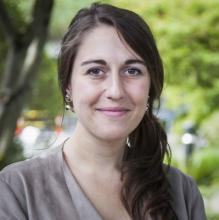Amber's research is centered on food security, food sovereignty, and climate resilience in the Philippines. In collaboration with Farmer-Scientist Partnership for Agricultural Development (MASIPAG), a local network of small-holder farmers, Amber develops measurable indicators that comparatively assess agrarian systems and evaluates the impact of climate change.
Research Description
The Philippines is one of the foremost countries affected by climate change, with increasing incidence of super typhoons, droughts, floods, and changing rain patterns — all of which exacerbate existing food insecurity, poverty, and ecological degradation. The objective of our research project is to analyze how and to what extent these smallholder farmers are enhancing their livelihoods; responding to loss and damage incurred due to climate change; and serving as catalysts for climate change adaptation, mitigation, and overall resiliency through farmer-led agricultural development initiatives. The challenge with this research lies in capturing the range of complex and interrelated dimensions encompassed in agrarian systems. Another challenge is developing new methodological approaches to empirically measure the outcomes of dynamic agroecological strategies and their overall impact on climate resiliency and food security. In response, we propose a systems-based approach built on the principles of 'food sovereignty' as a framework for investigating these dynamics and assessing their impact on both food security and climate resiliency.
What does being a Public Scholar mean to you?
Engaging the public in your research endeavors. Creating a space for an iterative process to take place, in which knowledge and perception is exchanged. Engaging in efforts to translate scholarship into a language and format that is palatable to a broader and more diverse audience.
In what ways do you think the PhD experience can be re-imagined with the Public Scholars Initiative?
I appreciate the potential and encouragement to translate the knowledge I acquire as a PhD student into a non-traditional format, something beyond the typical dissertation. This initiative creates the space and opportunity for a the university and constituents to develop innovative ways of sharing scholarship, knowledge, and effecting change. For me, this initiative represents a step down from the 'ivory tower', an attempt at removing boundaries, and an opportunity to allow students to think outside of the box and beyond the 'sky’s limit'.
How do you envision connecting your PhD work with broader career possibilities?
Immersing myself in scholarship, being active in communities, and engaging with the public is most certainly helping me to develop a broad spectrum of skills. With the growing urgency to address food insecurity in the face of climate change and increased inequities, I am willing to dedicate a career to participating in the development, implementation, and/or documentation of resolutions. In other words, I have chosen to be open to the possibilities and opportunities that present themselves.
How does your research engage with the larger community and social partners?
The topic/focus of my dissertation research was derived from conversations with Magsasaka at Siyentipiko para sa Pag-unlad ng Agrikultura (Farmer-Scientist Partnership for Agricultural Development, MASIPAG), a network of small-holder farmers in the Philippines. I intend to continue this collaborative effort throughout my research project. Additionally, I've become active within the Filipino community on and off campus. I'm a Co-Coordinator for the Philippine Studies Series and a Radio Host for Jeepney Cafe’s: Land is Life Program. I use these roles as an opportunity to share my research interests and to learn directly from others in the community. Essentially, these activities give me the space and opportunity to exchange knowledge and perceptions.
Why did you decide to pursue a graduate degree?
During my participation in the PEACE Program, I saw houses erected within landfills and witnessed people searching for food among the discarded waste; visited indigenous land and listened to the elders describe how their revered mountain and river (livelihood sources), were destroyed by a mining corporation; and met with peasants who were forced to squat on public land and in constant fear of violent land grabs. Being a witness to such suffering compelled me to share these stories, to learn more, and to help.
Why did you choose to come to British Columbia and study at UBC?
I was interested in working with my current advisor Dr. Hannah Wittman, a formidable contributor to agrarian studies and a leader in food sovereignty research. The Faculty of Land & Food Systems (LFS) is one of a few faculties/departments that promotes taking an integrated approach in order to solve issues surrounding human health, food security, and the use of finite land and water resources. This interdisciplinary approach is consistent with my research interests and endeavors.
With the growing urgency to address food insecurity in the face of climate change and increased inequities, I am willing to dedicate a career to participating in the development, implementation, and/or documentation of resolutions.




